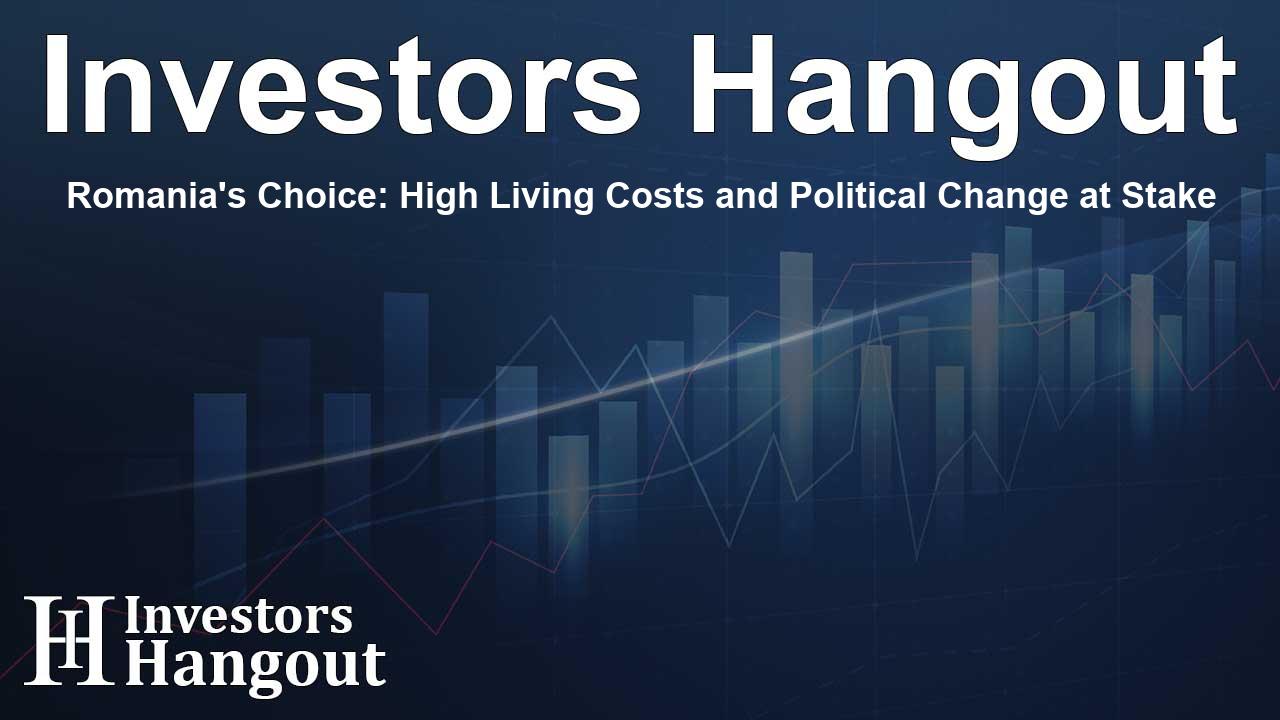Romania's Choice: High Living Costs and Political Change at Stake

Romanians Head to the Polls Amid Economic Concerns
As Romanian citizens cast their votes in the presidential election, they are primarily concerned with pressing issues such as escalating living costs and the ongoing conflict in Ukraine. The political climate is polarized, and hard-right politician George Simion positions himself as an outsider against the established political elite.
Candidates and Their Positions
The prominent contenders include leftist Prime Minister Marcel Ciolacu, aged 56, from the Social Democrats, and the 38-year-old Simion, representing the Alliance for Uniting Romanians. Polls indicate that Ciolacu is likely to advance to the run-off on Dec. 8, with Simion following close behind.
Current Voting Landscape
Approximately 3.7 million Romanians, equating to about 20.7% of registered voters, had participated in early voting by mid-morning. The election process is closely watched, especially with voting by Romanians abroad having already commenced, where Simion enjoys substantial popularity.
Potential Outcomes of the Election
Given the potential face-off between Ciolacu and Simion, analysts predict that Ciolacu may be able to capture moderate votes based on his experience and governance during difficult times. The anticipated run-off could also invigorate centre-right voters, possibly benefiting candidate Elena Lasconi from the Save Romania Union.
Voter Concerns and Economic Realities
Simion's campaign resonates with citizens who feel disconnected from the traditional political structures, as he pledges to safeguard Romania's economic independence. He opposes foreign military aid to Ukraine, advocating instead for peace and a focus on national sovereignty.
Public Sentiment on the Ground
Voters like Valentin Ion express concerns over the war's impact on their lives, emphasizing the need for political leaders to show empathy and support for vulnerable communities. Romania faces one of the highest risks of poverty within the EU, making economic relief a priority for many voters.
Government Initiatives Amidst Challenges
In response to the economic strain, Ciolacu's coalition has attempted to uplift living standards by increasing the minimum wage and pensions. Despite these efforts, ballooning deficits and persistent inflation remain critical issues that voters are keenly aware of.
Political Shifts and Future Directions
The unpredictability of this election stems from a crowded field of candidates, many of whom advocate for conservative family values. Political experts suggest that the complexity of issues and voter preferences could lead to a fragmentation of votes, affecting overall outcomes.
Legacy of Outgoing Leadership
Klaus Iohannis, who has served two terms, solidified Romania's pro-Western stance but faced criticism for his passive approach towards corruption. The next president will inherit ongoing challenges, particularly in navigating foreign relations and domestic stability.
Conclusion and Voter Perspectives
As Romanians weigh their choices, the implications of their votes extend beyond the ballot. It reflects a desire for change amidst economic challenges and a quest for a political leader who resonates with the everyday struggles of their lives.
Frequently Asked Questions
1. What are the main issues influencing Romanian voters?
Voters are primarily concerned about high living costs and the war in Ukraine, seeking a candidate who addresses these challenges effectively.
2. Who are the leading candidates in the election?
Marcel Ciolacu from the Social Democrats and George Simion from the Alliance for Uniting Romanians are the leading candidates, with the potential for a run-off election.
3. How has voting turned out so far?
By midday, around 3.7 million Romanians had already cast their votes, indicating a significant voter turnout in the early hours of election day.
4. What is the role of the president in Romania?
Romania's president has a semi-executive role, leading the armed forces and influencing foreign policy, with the right to serve two five-year terms.
5. What are the implications of this election for the future?
The election outcome could lead to significant changes in Romania's domestic policy and its stance towards international issues, particularly regarding economic independence and military aid.
About Investors Hangout
Investors Hangout is a leading online stock forum for financial discussion and learning, offering a wide range of free tools and resources. It draws in traders of all levels, who exchange market knowledge, investigate trading tactics, and keep an eye on industry developments in real time. Featuring financial articles, stock message boards, quotes, charts, company profiles, and live news updates. Through cooperative learning and a wealth of informational resources, it helps users from novices creating their first portfolios to experts honing their techniques. Join Investors Hangout today: https://investorshangout.com/
Disclaimer: The content of this article is solely for general informational purposes only; it does not represent legal, financial, or investment advice. Investors Hangout does not offer financial advice; the author is not a licensed financial advisor. Consult a qualified advisor before making any financial or investment decisions based on this article. The author's interpretation of publicly available data shapes the opinions presented here; as a result, they should not be taken as advice to purchase, sell, or hold any securities mentioned or any other investments. The author does not guarantee the accuracy, completeness, or timeliness of any material, providing it "as is." Information and market conditions may change; past performance is not indicative of future outcomes. If any of the material offered here is inaccurate, please contact us for corrections.